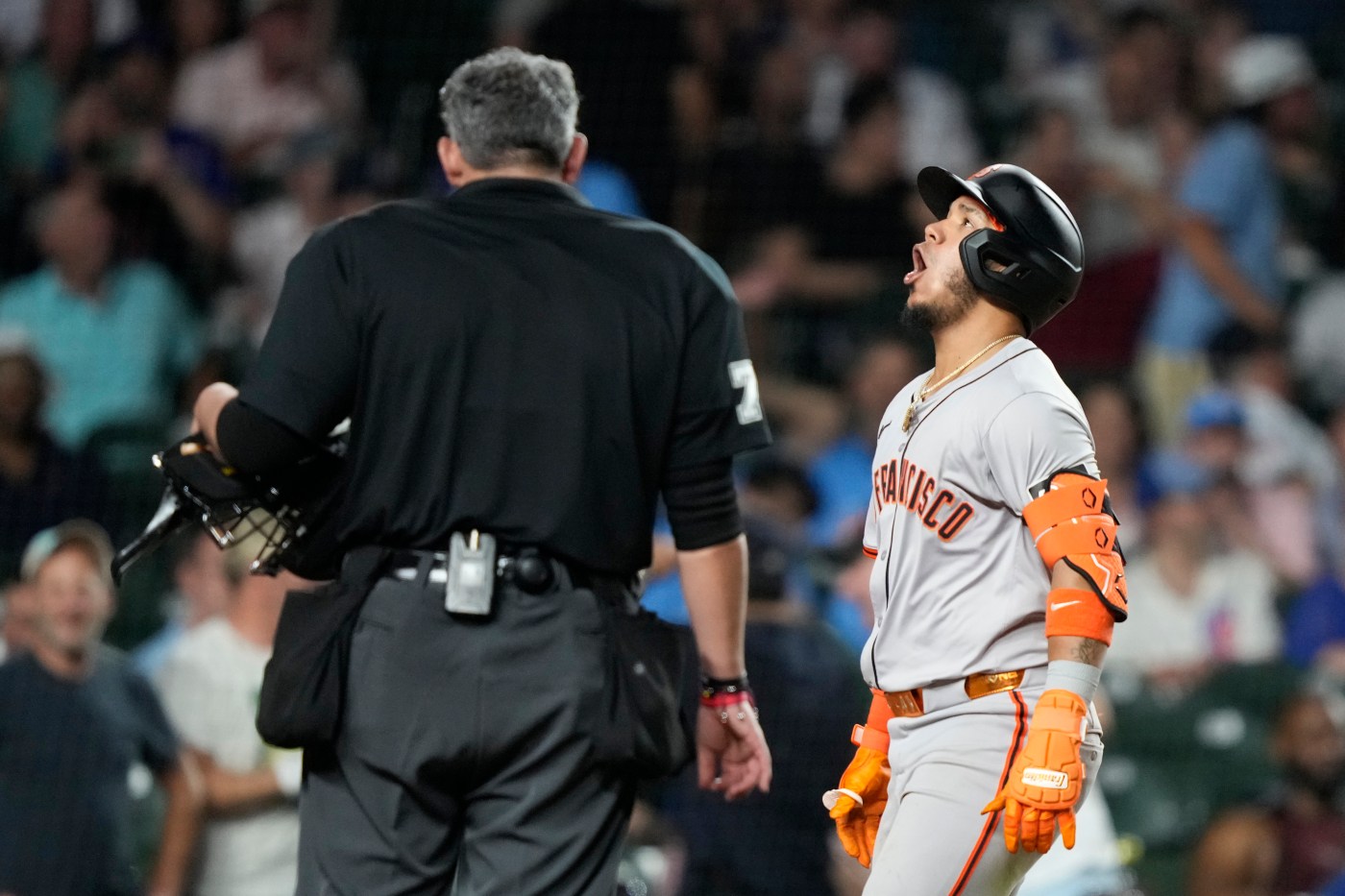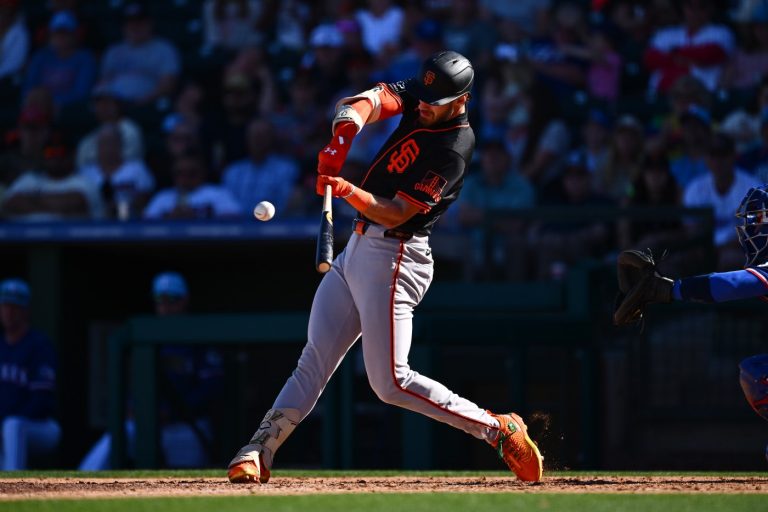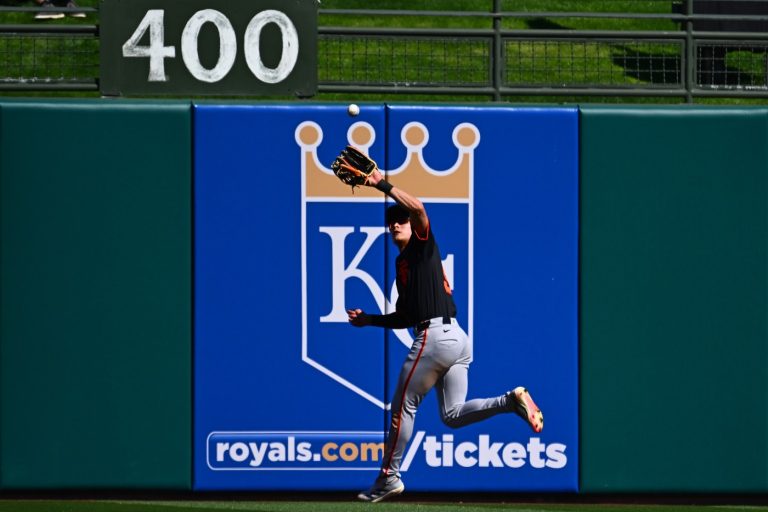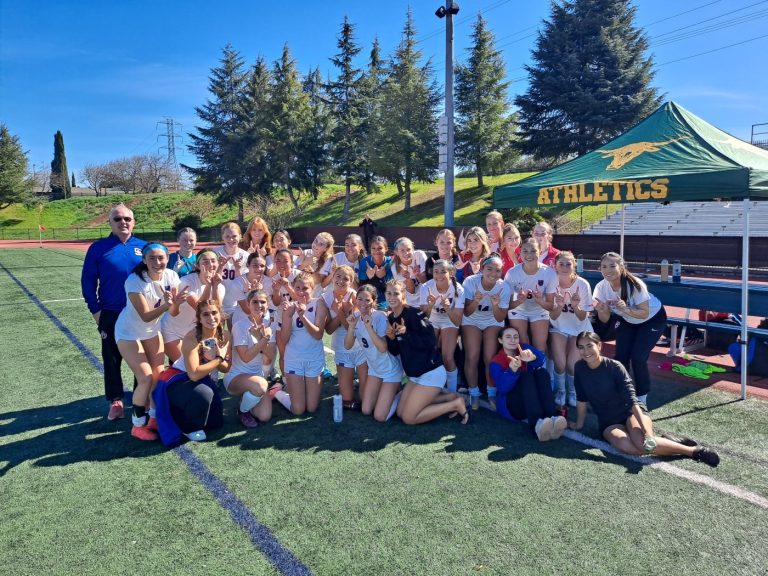CHICAGO — The batting cages at Wrigley Field are down one set of stairs, around a corner and past another, longer staircase. To reach the manager’s office requires a climb up another set of stairs, 49 steps, and a march through the cramped clubhouse quarters.
The former is where Bob Melvin spoke his team’s late-inning theatrics into existence hours before first pitch Monday, and the latter where he was forced to observe after being ejected from the game in the eighth inning, just before the most-thrilling moments of the Giants’ 7-6 win to begin their three-game series against the Cubs.
“I caught a glimpse of it,” the manager said with a glimmer.
By the time Thairo Estrada launched the first pitch he saw from Hector Neris in the top of the ninth inning into the left field bleachers, Melvin had seen the two teams trade leads five times, slug four home runs and strand 18 runners on base before being tossed arguing balls and strikes for the third time this season.
Given the circumstances, Estrada crossed home plate gleaming after his three-run blast landed on the other side of the ivy in left field — the fifth home run of the final four innings — and put the Giants ahead for good in this back-and-forth affair. It followed solo shots from Patrick Bailey and Heliot Ramos that pulled them within striking distance.
Asked if he had hit a more consequential home run in his six-year career, Estrada responded in Spanish, “You guessed it. I haven’t hit a bigger home run than the one I hit today.
“I was very positive today. I showed up. Put the batting gloves on. Got myself mentally ready. And I just had this feeling that something big was going to happen for me today.”
The Giants were trailing 6-4 when Melvin was tossed by home plate umpire Manny Gonzalez in the middle of the eighth inning. They got five scoreless innings from their starter, Jordan Hicks, but the two arms available in their bullpen — rookies Randy Rodriguez and Erik Miller — combined to allow six runs on a pair of home runs.
The outcome risked mirroring the last game the Giants’ lost, when they allowed the Angels to score the final three runs of a 4-3 loss Saturday.
That tough loss, done in by a game-tying home run in the sixth inning and a game-changing error the next inning, helped fuel a comeback only two days later.
“We talked a little bit about it in the hitters’ meeting today,” Melvin said. “We had a really, really tough loss a couple of games ago. And every time we’ve had one of those, it’s seemed like we’ve come back and responded well.”
Resilience, somehow, is becoming a defining factor for a team still a game below .500. It was their 17th come-from-behind win of the season and their third time winning despite trailing entering the ninth inning, to go with five wins when the score is tied after eight.
“We’ve had a couple games like this where we’ve come from behind,” said Mike Yastrzemski, who got the Giants on the board with an RBI triple in the fourth inning and kept the Cubs from scoring with his assist from right field in the fifth. “It’s huge for our confidence, knowing that we’re never out of the game. As much as it looks like there’s a roller coaster of emotions, I don’t think there was as much as it looked like. Everyone was pretty calm and focused on what we had to do to win that game.”
With the would-be tying run on third and one out in the fifth, Yastrzemski fired a strike to catcher Patrick Bailey, who applied the tag on Patrick Wisdom and held his glove up to the home plate umpire, who raised his fist to signal an out and completed 9-2 double play.
It was the second time the Cubs were doubled up on the bases. Mike Tauchman was also thrown out by Michael Conforto to end the first inning.
“They’re momentum swings,” Melvin said. “The first one, there’s potentially a guy on second base, in scoring position. And with Yaz, at the time it’s a one-run game, so it’s a huge play. He’s got to make a great throw. And now with the blocking the plate (rules), Bails has to have the presence of mind to start in the right spot, which is very difficult when it’s a one-run game and you’re just digging to get an out.”
At 90.2 mph, it was Yastrzemski’s hardest throw from the outfield this season.
“One of my favorite plays in baseball is the outfield assist,” said Hicks, who pumped his fist in celebration. “It’s almost like a lost art in this game. But when it happens, it gets me going. I played outfield in high school, and that was my favorite thing to do.”
Related Articles
SF Giants: Bochy, Melvin share their Willie Mays memories ahead of Rickwood Classic
SF Giants’ All-Star voting leader didn’t even start season on MLB roster
Hall of Famer Willie Mays will not be in attendance for SF Giants’ Negro League tribute game at Rickwood Field
SF Giants’ key hits open floodgates as 29-year-old earns win in MLB debut
From France to Oracle Park: New SF Giants pitcher realizes MLB dream
His jersey soaked with sweat by the time his day was over after five innings and 87 pitches, Hicks battled the hottest conditions the Giants have played in this season. It was 93 degrees at first pitch, and while Hicks said he “didn’t really notice” the sticky heat, his fastball velocity dipped again, to an average of 93.1 mph.
After completing six innings three times in his first six starts, Hicks hasn’t done it once in his past nine outings. But it was his first time registering a zero in the run column since his first start of the season, lowering his ERA to 2.82, fourth-best in the National League.
At 76⅔ innings for the season, Hicks is one frame away from matching the career-high he set as a rookie reliever in 2018.
“Overall I felt like my sinker was working well today, and the splitter off that was pretty nice,” Hicks said. “My last year in the minor leagues, I got a scouting report from another team and they were like, ‘Anywhere from 89 to 99 (mph).’ It’s not that I’m trying to embrace it, but when I’m going more innings, especially when you have both, there are different situations where a 98 might play or a 92 might play.”












